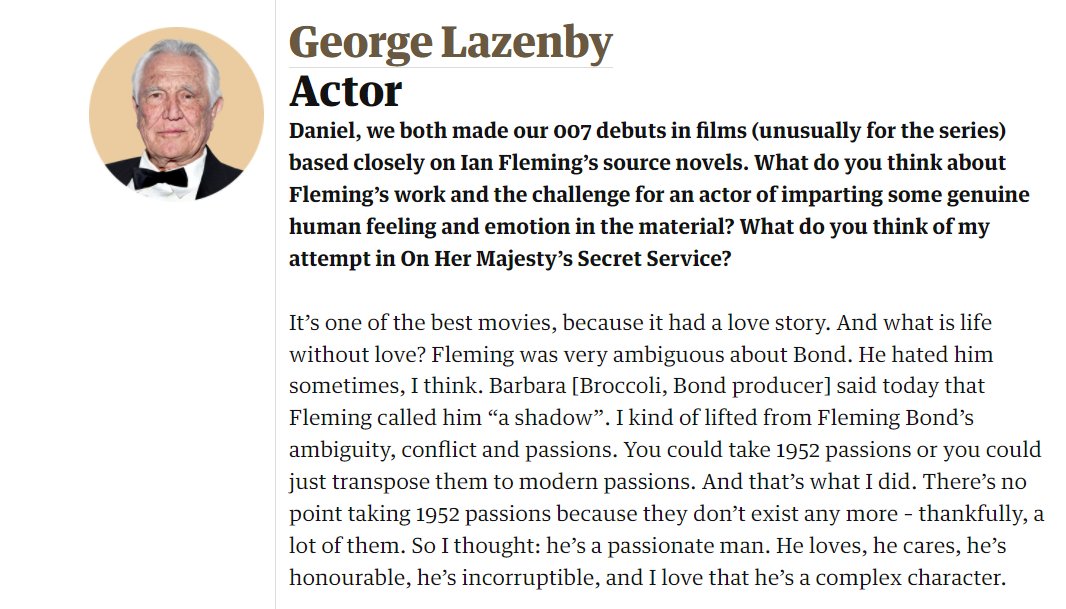
The whole 'licence to kill' issue is up and running again...but misses the point by a country mile, which is Bond was never a traditional intelligence office, nor meant to be
And also takes a very narrowly British view of espionage and assassination, which is not followed by all, and no, not just the Soviets/Russians
*officer
But Bond's origins owe far more to the quasi-para-military-espionage milieu of the wartime Special Operations Executive than simply to SIS.
It's in that nexus between intelligence agencies and para-military operations in which he is based, and always has been
It's in that nexus between intelligence agencies and para-military operations in which he is based, and always has been

Ignoring this murky overlap, or perhaps being ignorant of that interaction and Fleming's deliberate conflation of these spheres of operation isn't being pedantically accurate, it's getting Bond wrong
And yes it is left hanging in many of the books and films, but Jeffery Deaver addresses it directly in his Bond novel Carte Blanche with the creation of the Overseas Development Group – a covert operational unit of British security controlled by the FCO 

But nevertheless this idea is now embedded in the fictional literature
quercusbooks.co.uk/titles/david-i…
quercusbooks.co.uk/titles/david-i…
So is the 'license to kill' real?
No. But there are examples that come close and Fleming was well aware of those blurred lines in the 2ndWW, which was the birth-place of Bond, not the Cold War as many seem to think.
The End.
No. But there are examples that come close and Fleming was well aware of those blurred lines in the 2ndWW, which was the birth-place of Bond, not the Cold War as many seem to think.
The End.
• • •
Missing some Tweet in this thread? You can try to
force a refresh















